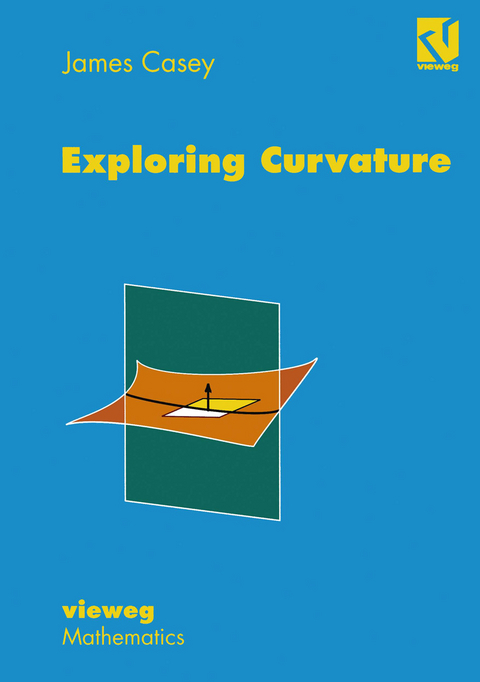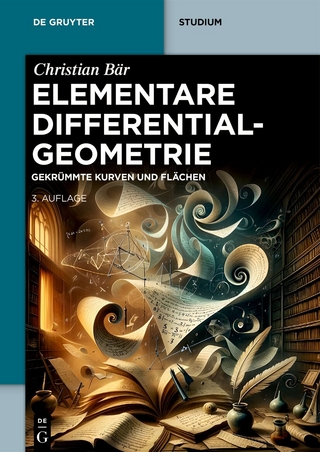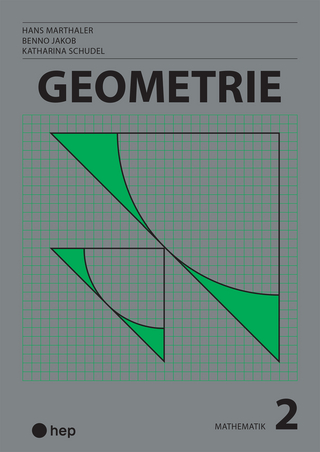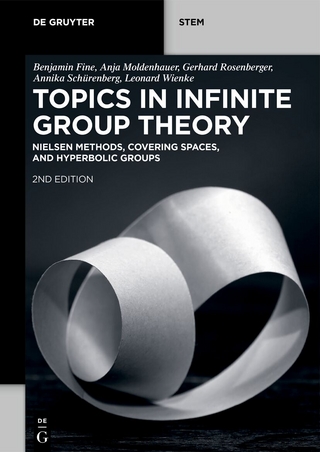
Exploring Curvature
Seiten
1996
|
1. Softcover reprint of the original 1st ed. 1996
Vieweg & Teubner (Verlag)
978-3-528-06475-4 (ISBN)
Vieweg & Teubner (Verlag)
978-3-528-06475-4 (ISBN)
Einfache Experimente: Veranschaulichung differentialgeometrischer Begriffe
Diese Einführung ist als Brücke zwischen der euklidischen und der modernen Geometrie gekrümmter Räume gedacht. Durch eine Sammlung einfacher Experimente, die der Leser zu Hause oder im Unterricht ausführen kann, bietet es einen intuitiven Einstieg. Beschrieben werden physikalische Methoden zur Untersuchung der intrinsischen Geometrie gewöhnlicher gekrümmter Objekte wie Schalen, Bälle und Wassermelonen. Die Begriffe der Gaußschen Krümmung, des Paralleltransports und der Geodätischen werden behandelt. Außerdem enthält das Buch biographische Kapitel über Gauß, Riemann und Levi-Civita.
. . . one should not be too ready to erect a wall of separation between nature and the human mind. d'Alembert [Dugas (1955)] It is possible to present mathematics in a purely fonnal way, that is to say, without any reference to the physical world. Indeed, in the more advanced parts of abstract algebra and mathematical logic, one can pro ceed only in this manner. In other parts of mathematics, especially in Euclidean geometry, calculus, differential equations, and surface ge ometry, intimate connections exist between the mathematical ideas and physical things. In such cases, a deeper (and sometimes quicker) under standing can be gained by taking advantage of these connections. I am not, of course, suggesting that one should appeal to physical intuition whenever one gets stuck in a mathematical proof: in proofs, there is no substitute for rigor. Rather, the connections with physical reality should be made either to motivate mathematical assumptions, or to introduce questions out of which theorems arise, or to illustrate the results of an analysis. Such interconnections are especially important in the teaching of mathematics to science and engineering students. But, mathematics students too have much to gain by familiarizing themselves with the interconnections between ideas and real things. The present book explores the geometry of curves and surfaces in a physical way.
Diese Einführung ist als Brücke zwischen der euklidischen und der modernen Geometrie gekrümmter Räume gedacht. Durch eine Sammlung einfacher Experimente, die der Leser zu Hause oder im Unterricht ausführen kann, bietet es einen intuitiven Einstieg. Beschrieben werden physikalische Methoden zur Untersuchung der intrinsischen Geometrie gewöhnlicher gekrümmter Objekte wie Schalen, Bälle und Wassermelonen. Die Begriffe der Gaußschen Krümmung, des Paralleltransports und der Geodätischen werden behandelt. Außerdem enthält das Buch biographische Kapitel über Gauß, Riemann und Levi-Civita.
. . . one should not be too ready to erect a wall of separation between nature and the human mind. d'Alembert [Dugas (1955)] It is possible to present mathematics in a purely fonnal way, that is to say, without any reference to the physical world. Indeed, in the more advanced parts of abstract algebra and mathematical logic, one can pro ceed only in this manner. In other parts of mathematics, especially in Euclidean geometry, calculus, differential equations, and surface ge ometry, intimate connections exist between the mathematical ideas and physical things. In such cases, a deeper (and sometimes quicker) under standing can be gained by taking advantage of these connections. I am not, of course, suggesting that one should appeal to physical intuition whenever one gets stuck in a mathematical proof: in proofs, there is no substitute for rigor. Rather, the connections with physical reality should be made either to motivate mathematical assumptions, or to introduce questions out of which theorems arise, or to illustrate the results of an analysis. Such interconnections are especially important in the teaching of mathematics to science and engineering students. But, mathematics students too have much to gain by familiarizing themselves with the interconnections between ideas and real things. The present book explores the geometry of curves and surfaces in a physical way.
Dr. J. Casey ist Professor an der University of California, Berkeley Department of Mechanical Engineering.
1. The Evolution of Geometry.- 2. Basic Operations.- 3. Intersecting with a Closed Ball.- 4. Mappings.- 5. Preserving Closeness: Continuous Mappings.- 6. Keeping Track of Magnitude, Direction and Sense: Vectors.- 7. Curves.- 8. Arc Length.- 9. Tangent.- 10. Curvature of Curves.- 11. Surfaces.- 12. Surface Measurements.- 13. Intrinsic Geometry of a Surface.- 14. Gauss (1777-1855).- 15. Normal Sections.- 16. Gaussian Curvature.- 17. Riemann (1826-1866).- 18. Levi-Civita (1873-1941).- 19. Parallel Transport of a Vector on a Surface.- 20. Geodesics.- 21. Geometry and Reality.
| Erscheint lt. Verlag | 1.11.1996 |
|---|---|
| Zusatzinfo | XVI, 291 p. 51 illus. With 141 figs. |
| Verlagsort | Wiesbaden |
| Sprache | englisch |
| Maße | 148 x 210 mm |
| Gewicht | 440 g |
| Themenwelt | Mathematik / Informatik ► Mathematik ► Geometrie / Topologie |
| Schlagworte | commonplace curved objects • Curvature • euklidische Geometrie • experiments • Gaussian curvature • Geometry • Krümmung • moderne Geometrie |
| ISBN-10 | 3-528-06475-7 / 3528064757 |
| ISBN-13 | 978-3-528-06475-4 / 9783528064754 |
| Zustand | Neuware |
| Haben Sie eine Frage zum Produkt? |
Mehr entdecken
aus dem Bereich
aus dem Bereich
Gekrümmte Kurven und Flächen
Buch | Softcover (2024)
De Gruyter (Verlag)
54,95 €
Nielsen Methods, Covering Spaces, and Hyperbolic Groups
Buch | Softcover (2024)
De Gruyter (Verlag)
109,95 €


